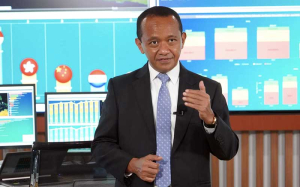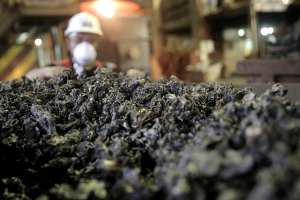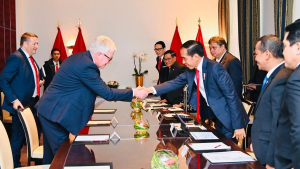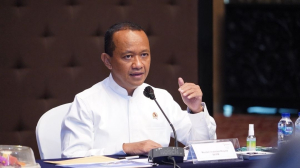Indonesia extends Freeport’s export permit until June
The Indonesian government has granted PT Freeport Indonesia (PTFI) an export permit extension until June 2025, following delays in the operation of its new US$3 billion smelter in Gresik, East Java after a fire incident in its sulfuric acid facility last October.
Minister of Energy and Mineral Resources (ESDM) Bahlil Lahadalia confirmed the decision after a limited cabinet meeting, emphasizing that the government prioritizes national interests, corporate stability, and the welfare of the Papuan people.
"We must consider everythin − the interests of the country, the company, and the people of Papua. By law, the export deadline was set for December 31, 2024. However, after reviewing the fire incident, which was confirmed as accidental by both the police and an international insurance firm, the government decides to allow Freeport to continue exporting until the damaged plant is repaired," Bahlil said on Friday, February 21, 2025.
As part of the agreement, PTFI CEO Tony Wenas has signed a notarized statement, committing to the June deadline. If the smelter repairs are not completed by then, Freeport will face sanctions. Additionally, the government has imposed the highest possible export tax on Freeport’s concentrate shipments.
"The export tax is at its maximum level. This has been coordinated with the Ministry of Finance and other relevant ministries, under the leadership of the Coordinating Minister for the Economy," Bahlil said.
Gradual operations and export volumes
Despite the June deadline, Bahlil cited that smelter operations cannot immediately reach its full capacity, but require a phased approach.
"A smelter is like a new car − you can’t accelerate straight to 140 km/h. It needs a gradual break-in period. Initially, around 60 to 70 percent of the concentrate will be processed in the smelter, while 30 to 40 percent will be exported in stages. By September or October, everything should be fully operational," he said, while insisting that the export permit officially will remain valid only until June.
Impact on workers, local economy
The decision also has taken into account the economic impact on workers, Timika region, and Papua’s local government.
"If we don’t allow exports, what will happen to the workers? What about revenue for Papua? Production would stop, and Freeport would have to bear the costs. And who owns 51 percent of Freeport? The government. We must ensure economic stability while upholding national interests," Bahlil said.
While Freeport has requested approval for the export of 1.5 million tons of surplus concentrate, the government is still reviewing the final export volume. As of today, the official recommendation for implementation is still under review.
"Freeport has submitted its request, but no final approval has been given yet. Just wait for the government’s decision," Bahlil concluded.
Already have an account? Sign In
-
Start reading
Freemium
-
Monthly Subscription
30% OFF$26.03
$37.19/MonthCancel anytime
This offer is open to all new subscribers!
Subscribe now -
Yearly Subscription
33% OFF$228.13
$340.5/YearCancel anytime
This offer is open to all new subscribers!
Subscribe now






